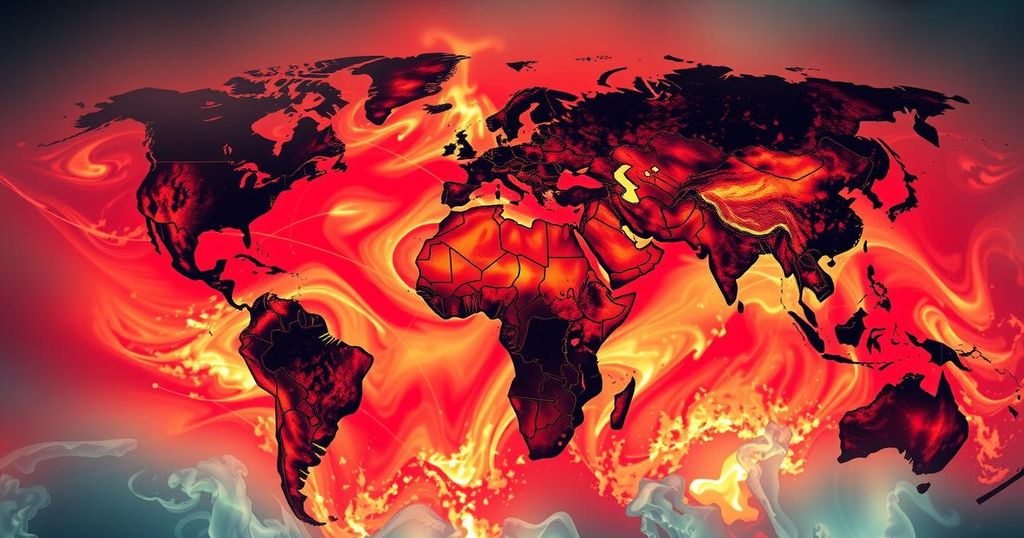Weather
AARON FAVILA, ANDY WONG, AP, ASIA, ATHENS, BEIJING, CENTRAL, CHINA, CLIMATE, CLIMATE CHANGE, COUNTY HOMELESS TRUST, CROSS, CUBA, EUROPE, FELIX MARQUEZ, GLOBAL WARMING, GREECE, LYNNE SLADKY, MIAMI - DADE COUNTY HOMELESS TRUST, NORTH AMERICA, PARTHENON, PHILIPPINES, PRIZES, QUEZON CITY, WEATHER
Ethan Kim
0 Comments
Climate Change Causes 41 Days of Additional Dangerous Heat in 2024
In 2024, climate change resulted in an average of 41 additional dangerous heat days worldwide. The year saw epic temperature records and extreme weather events that led to thousands of fatalities. The research highlights a strong link between climate change and worsening extreme conditions, with particular emphasis on the adverse impacts on vulnerable populations. Action to combat climate change is deemed crucial to mitigate future risks.
In 2024, human-induced climate change caused an average increase of 41 dangerous heat days worldwide, according to researchers from World Weather Attribution and Climate Central. This alarming statistic emerged following a year of unprecedented temperatures, making 2024 potentially the hottest year recorded. As regions battled severe heat extremes—from California to Greece, the effects of this climate crisis became acutely evident, adversely impacting the health and safety of millions.
The effects of climate change were particularly pronounced in vulnerable areas, where extreme heat exacerbated existing challenges. The analysis revealed that extreme weather events, including droughts, floods, and cyclones, were intensified by climate change, resulting in devastation to lives and livelihoods. Scientists indicated that the conditions experienced throughout 2024 highlight a critical warning on the perils of surpassing the 1.5 degrees Celsius limit set by the Paris Agreement, an event anticipated to occur in the near future if current trends continue.
The data indicates that 26 of the 29 studied extreme weather events, which claimed over 3,700 lives this year, were directly linked to climate change. Researchers asserted that while the natural El Niño phenomenon contributed, climate change played a more substantial role in driving the severity of these weather conditions. They emphasized that the poor nations face disproportionate impacts, suffering even more extreme heat days than wealthier countries.
The ongoing climate crisis has led to significant global shifts in weather patterns, with experts highlighting that 2024 is proving to be a pivotal year. The rise in average temperatures has been linked directly to human activity, specifically greenhouse gas emissions generated from fossil fuel combustion. As the Earth approaches critical temperature thresholds, scientists warn about the increasing frequency and intensity of dangerous weather events. This study illustrates how climate change is not only exacerbating existing challenges but also threatening the future safety and health of populations worldwide.
The findings from this comprehensive assessment emphasize the urgent need for action against climate change, as millions continue to endure unprecedented heat waves and their grave consequences. The strong correlation between climate change and extreme weather underscores the importance of reducing greenhouse gas emissions and committing to climate resilience strategies. Addressing these issues collectively is vital for mitigating future risks and safeguarding vulnerable populations globally.
Original Source: apnews.com




Post Comment